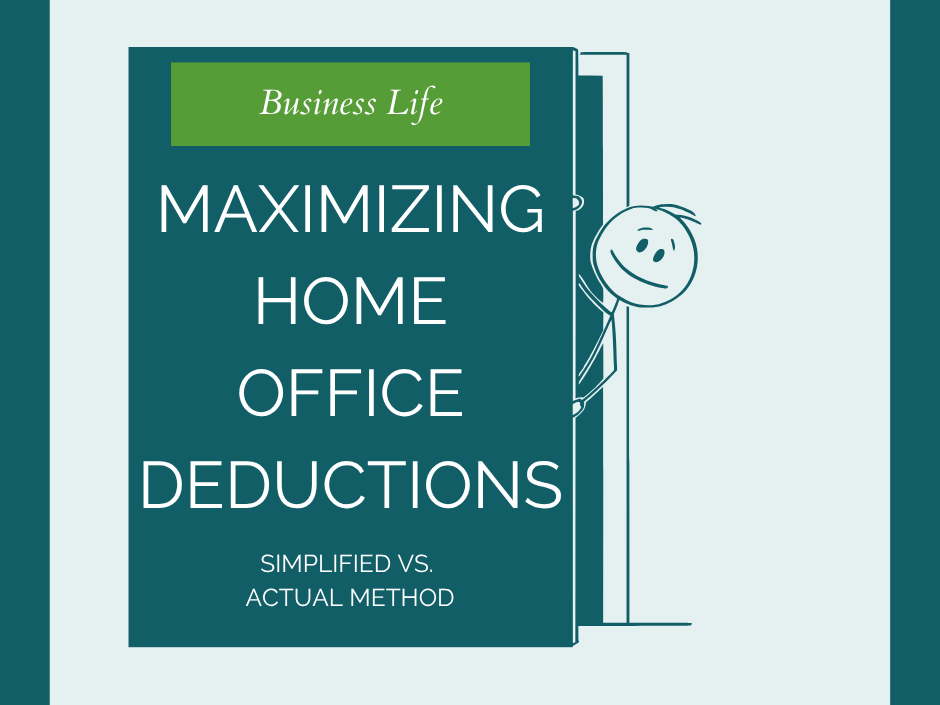What Business Entity is Best for my Business?
- Jan 12, 2025
- 4 min read

The two primary reasons why you want to carefully choose a business entity is for protection and tax savings. Each entity is slightly different and comes with its own set of rules. There is not one entity that is better than the other.
Each situation has its pros and cons. We suggest you start simple and then grow into another entity.
We want to stress that you should really speak to an attorney on which entity is best for you and your business.
You have several choices, but to simplify we will mention the 3 most common entities: Sole Proprietorship, Limited Liability Company (LLC) and S-Corporation.
Sole proprietorship:
Summary: This is the default entity. If you do nothing, you are automatically a sole proprietor. No specific rules need to be followed. There are a ton of suggestions, but no requirements.
As a sole proprietor, you have no protection. If you get sued, all of your assets are up for grabs. Absolutely terrifying – right? Before you panic, you need to evaluate how much risk do you really have. This is a question you should discuss with your attorney. Sole proprietorship may be the best fit for you and if you properly insure yourself, you may be good.
Taxes: As a sole proprietor, your income and expenses are reported on the Schedule C on your personal 1040. Your profit is then subject to self-employment tax, Social Security and Medicare, also known as SE Tax. We all pay Social Security and Medicare on earned income, whether you are a W2 employee or a business owner. Social Security and Medicare tax is 15% of your earned income, which is evenly split between the employee and employer. As a business owner, you are acting as both the employee and employer and therefore are responsible for paying both portions. Your SE tax is calculated on your 1040, but please see the Estimated Tax section for how payments need to be made during the year.
Tax Form to be Filed: Reported on your personal 1040 Individual Income Tax Return.
Cost: The least expensive option because your business is reported on your personal tax return. There are several tax forms that need to be completed, but you do not have an additional tax return to complete for Federal purposes.
Pro: Easy to run and least expensive
Con: No protection of your assets and no tax benefits.
Limited Liability Company:
Summary: The title says it all. When you form a LLC, you are limiting your liability to the assets inside of the company. As long as you follow the rules that come with a LLC, you will protect your personal assets. Forming a LLC requires you to register with the Department of State
Single Member LLC
Taxes: If there is only one owner, you are considered a single member LLC. You file your business income and expenses the same way as a sole proprietor, on your personal 1040 Individual Income Tax Return.
Cost: The least expensive option because your business is reported on your personal tax return. There are several tax forms that need to be completed, but you do not have an additional tax return to complete for Federal purposes.
Pros: Protection of assets.
Cons: No tax benefits
Tax Form to be Filed: Reported on your personal 1040 Individual Income Tax Return.
Multiple Member LLC
If you have more than one member of an LLC, you are required to file a separate business income tax return and then each partner will receive a K-1 from the LLC reporting their share of profit/loss to be taxed. The LLC does not pay taxes, but rather each partner will pay taxes on their portion of profit/loss on their personal tax return. SE Tax, Social Security & Medicare, is also calculated per partner on the partner’s 1040 Individual Income Tax Return..
Cost: Multiple Member LLC: This does require an additional tax return to be filed as well as additional forms on your personal 1040 to report and the K-1 income.
Pros: Protection
Cons: No tax benefits
S-Corporation:
Summary: S-corporation’s are the only business entity to provide you with tax savings. Don’t get too excited! They come with additional rules to be followed as well as additional expenses. For most business owners, your profit needs to be well over $100,000 before the numbers make sense.
There are 2 pieces to a shareholders compensation: a reasonable salary through a W2 and shareholder draws on the profit. SE Tax is only calculated on the W2 amount, which means you save roughly 15% on the profit draws. We are over simplifying this, but you get the idea.
Now we mentioned a reasonable salary, this is incredibly important. If a surgeon working full time come to us and says his business profits $500,000 and he believes that his reasonable salary is $25,000, we would probably respond with, “You must be off your rocker because we both know that $25,000 is not reasonable!”
Talk to your accountant about what a reasonable salary really is for you and your business.
The biggest takeaway we can give you on S-corporations is: make sure your tax savings outweigh the additional cost that comes with being a S-corporation. Most people only hear “tax savings” and want to jump without any additional thought.
Be smart, talk to your attorney and accountant before choosing a business entity.



Comments